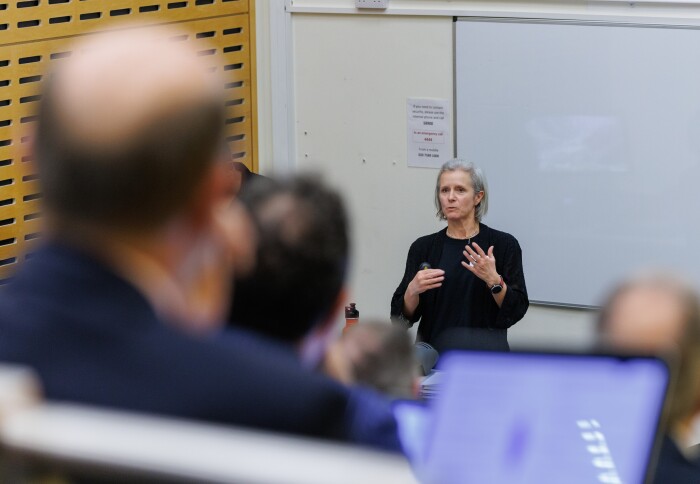Imperial Hosts a Global Summit on the Resilient and Renewable Planet
by Anna Friman

© Brendan Foster Photography
The R2P summit highlighted the urgent need to enhance society's resilience against natural and man-made disasters.
From April 17th to 19th, Imperial College London's Department of Civil and Environmental Engineering hosted a pioneering three-day summit in collaboration with the EIS Council and the Institute for Security Science and Technology, convening global leaders in resilience from industry, academia, and government.
The Resilient & Renewable Planet (R2P) conference aimed to foster collaboration and shared understanding among stakeholders to address the world's growing vulnerabilities and develop strategies for building resilience on multiple scales: from local infrastructure to planetary systems.
As the world grapples with high inflation, an energy crisis, geopolitical conflicts, and the aftermath of a global pandemic, the summit highlighted the urgent need to enhance society's resilience against natural and man-made disasters.
The modern, interconnected nature of our critical infrastructures has led to the emergence of new fragilities, with disruptions in one sector being able to cause cascading failures in others, potentially leading to a black sky event: a catastrophic event disrupting critical infrastructures in multiple regions for long durations, as defined by the EIS Council.
With distinguished panellists such as Rt Hon. Lord James Arbuthnot of Edrom, former Chair of the UK House of Commons Defence Committee, and U.S Congresswoman Yvette Clarke, member of the House Energy and Commerce Committee, the R2P conference explored critical resilience gaps, lessons from past disasters, the impact of natural hazards on our complex, interdependent supply chains, and how we develop critical infrastructure resilience while promoting renewable energy.
The discussions emphasized the importance of addressing black sky problems through a systematic, systems engineering approach.
Other key topics included the role of governments, businesses, and multinational institutions in creating incentives for investing in resilience to ensure human continuity, fostering global collaboration among problem owners, the role of data in tackling infrastructure challenges, and the most pressing black sky gaps.
Her Excellency Ambassador of Nicaragua Guisell Morales-Echaverry concluded the conference by urging attendees to "love the planet as you would your family" so we can meet the resilience and renewability challenges of the future.
Article text (excluding photos or graphics) © Imperial College London.
Photos and graphics subject to third party copyright used with permission or © Imperial College London.
Reporter
Anna Friman
Institute for Security Science & Technology